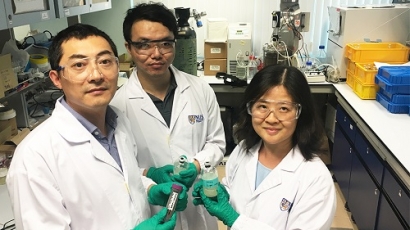
The team, led by Associate Professor He Jianzhong from the Department of Civil and Environmental Engineering at NUS Faculty of Engineering, first discovered the novel TG57 strain in 2015. They went on to culture the strain to examine its properties.
He explained, "The production of biofuels using non-food feedstocks can improve sustainability and reduce costs greatly. In our study, we demonstrated a novel method of directly converting cellulose to biobutanol using the novel TG57 strain. This is a major breakthrough in metabolic engineering and exhibits a foundational milestone in sustainable and cost-effective production of renewable biofuels and chemicals."
The novel technique developed by the NUS team could potentially be a game-changing technology for sustainable biofuel production.
Spent mushroom compost - typically composed of wheat straw and saw dust - is the residual compost waste generated by mushroom farming. The microorganisms in the waste are left to evolve naturally for more than two years to obtain the unique TG57 strain.
The fermentation process is simple, and no complicated pre-treatment or genetic modification of the microorganisms is required. When cellulose is added, the bacterium simply digests it to produce butanol as the main product.
Moving forward, the research team will continue to optimize the performance of the TG57 strain, and further engineer it to enhance biobutanol ratio and yield using molecular genetic tools.
The team published the findings of the study in the scientific journal Science Advances on March 23, 2018.
Photo: NUS engineers have found that a natural bacterium isolated from mushroom crop residue can contribute to greener and cheaper biofuel production.

